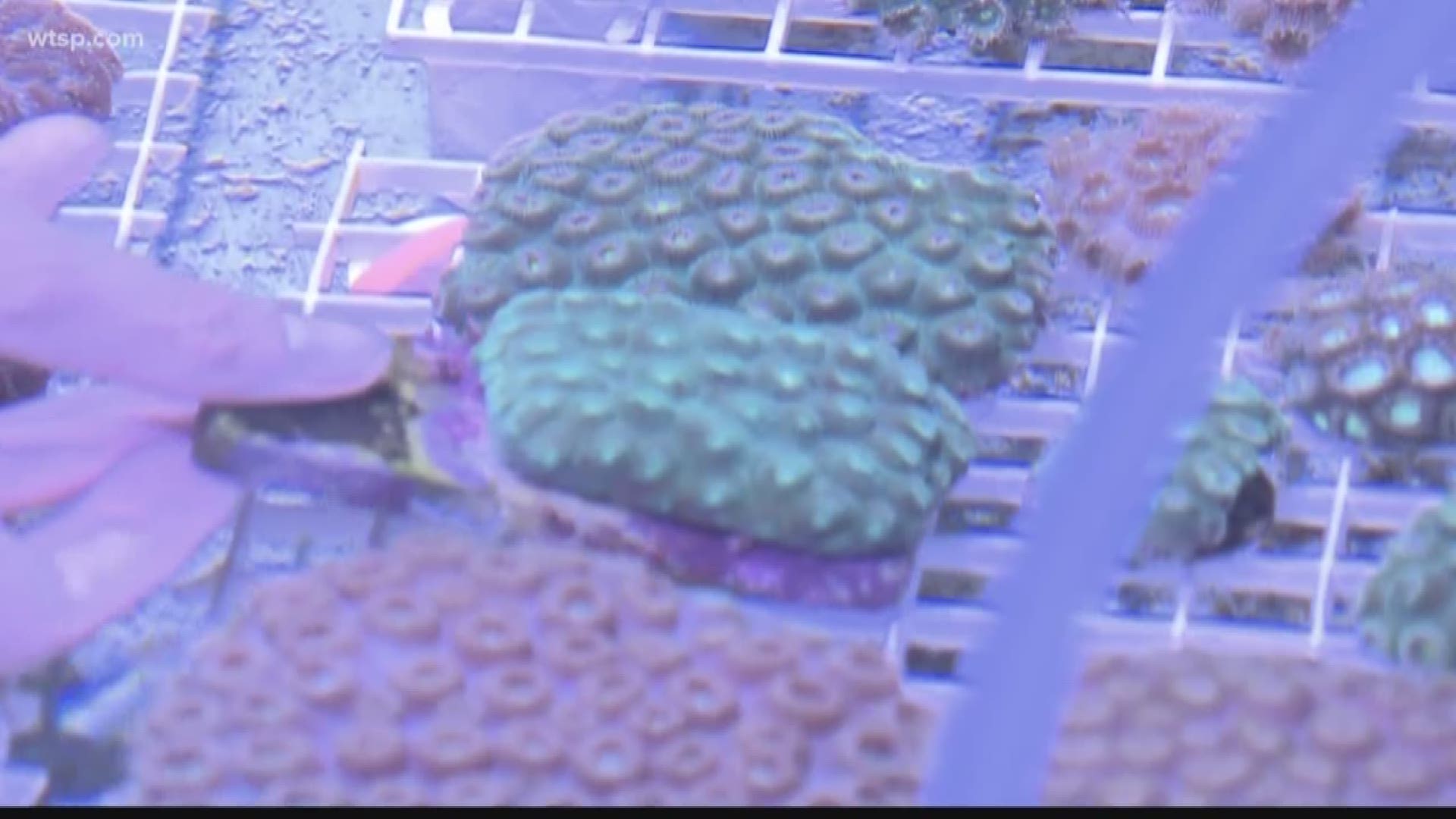SARASOTA, Fla. — Mote Marine Laboratory is part of a new initiative to save Florida's coral reefs.
Time might be of the essence. Roughly 50 years ago, the Florida Reef Tract would have been covered with living corals, said Dr. Erin Muller, the science director of Mote's coral research and restoration program.
"But now when you go out to that same reef site, only 2 percent of the reef is covered by living coral," she said. "So we’ve lost over 90 percent of our living corals. So we are on the brink of functional extinction at the Florida reef tract."
The Florida Reef Tract is almost gone, and that is not only a problem for the fish that call these coral systems home.
“There are incredibly important to us, whether we know it or not," Muller said. "They provide protection for our shorelines, they provide novel sources of medicine to treat things like cancer, and they are also a huge economic driver for the state of Florida.
"It’s estimated that corals are worth 8 billion dollars to the state’s economy."
It's why the National Oceanic and Atmospheric Administration and seven partners are joining together to create an aggressive rehabilitation plan.
“This is called Mission Iconic Reef. Seven reefs spread throughout the Florida Keys from the Upper Keys to the Lower Keys," Muller said. "And all the organizations identified as partners within this mission are going to be working towards recovering those seven reefs to a 25 percent coral cover within the next 20 years."
Mote will provide a lot of resiliency work and research. Currently, they study the stony coral tissue loss disease and are looking for corals that are resistant to it.
Those are some of the corals that will be best suited for this restoration. And they have also figured out a way to grow coral really, really quickly.
“We at Mote have developed a technique called micro fragmentation. So we are the first organization to apply that in a restoration technique," Muller said. "So what you can do is take a large piece of a coral, and you cut it up into very small pieces. And that fragmentation process accelerates the growth of those corals.
"So this allows us to create reproductive viable corals in two years. Whereas if we had let nature take its course, it could take decades to create a coral that size."
They don't have decades: with a timeline of roughly 20 years, Mote is excited to be working with other teams.
“So no single organization can do this alone," Muller said. "The Florida Reef tract is huge. And this collaborative effort allows us to work together with several other organizations so that our effort together is going to be more comprehensive, than us doing isolated projects on our own."
What other people are reading right now:
- Hundreds of truckers stranded across the country after company shuts down
- Boat Graveyard: More boats are moving out of the Bay after 10News' investigation
- NJ Governor: Police officers shot during standoff in Jersey City
- Warrant: Child soiled pants, teacher made him sit in it for two hours to 'prove a point'
- 12 Christmas light displays to see this year around Tampa Bay
FREE 10NEWS APP:



